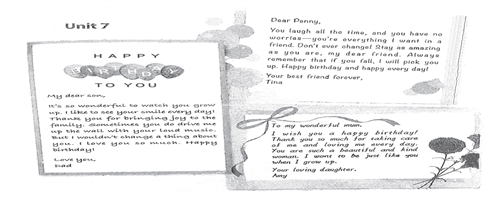China's Tomb Sweeping Day
清明节
A pril the fourth or fifth of the solar year(according to the Gregorian cal-endar) is a traditional day for the Chinese people to show respect for their ancestors. On this day,people sweep their ancestors' tombs and burn paper money to wish their ancestors good luck. There is a legend related to this tradition.According to the legend,during the Spring and Autumn Period,a person named Jie Zhitui followed his master Chong'er, the prince of Jin,and stayed with him dur-ing all the 19 years when the prince was in exile. Jie Zhitui was so loyal to his mas-ter that once when the prince was starved to death,Jie cut one piece of flesh from his leg to feed his master so as to save his life. However,when the prince ascen-ded the throne and became king of the Jin state,he forgot about Jie Zhitui tom-pletely. He awarded all his other followers except Jie. Jie,on his part,left his master with his old mother without even one word of complaint. The local people were very indignant about this and they compiled a rhyme to satirize the king. The king learned about this and in order not to ruin his reputation,he ordered his men to go to Jie"s home to bring him back,yet they failed to find Jie. The king then learned that Jie had hidden in the Mian Mountain .so he ordered his men to search the mountain,again,they failed to find Jie. The king knew that Jie was a filial son,so he thought if he set the mountain on fire,Jie,for his mother's sake,would defi-nately come out. Based on this thought,he ordered his men to set the mountain on fire. The fire lasted three whole days and nights,yet to the king's disappoint-ment,Jie never came out. In the end,Jie and his mother's burned bodies were found beside a tree. That was the 103 rd day after the Winter Solstice. The local people admired Jie Zhitui for his moral integrity. To commemorate him,they ate cold food and restrained from making fire on that day and the following two days.This is how hanshi。the Cold Food Day,came into being. Due to the fact that Cold Food Day and Pure Brightness often fall on the same day,the two are combined to form a comprehensive folk festival,during which time people go for outings,play kites,and sweep their ancestors' tombs.
每年公历4月4日(或5日)的清明节,是中国人传统的扫墓祭祖、哀悼先人的纪念日。每到了这一天,人们纷纷来到祖先的墓地,焚化纸钱,拜祭先人。清明节,古称三月节(通常在公历的4月4日或5日),本为古代的一个重要农事节日,因为“物至此时,皆以洁齐而清明矣”。所以每到此时,农民开始耕种,蚕农开始“命蚕妾,治蚕室”。但是在很早以前,清明节就与比它早一二天的寒食节相融合,融人了扫墓祭祖的内容。清明节这一习俗源于晋文公重耳悼念介之推的传说:相传春秋时期,晋国的介之推跟随晋公子重耳逃亡国外19年,忠心耿耿。一次重耳在魏国被困,几天吃不上饭,介之推就偷偷割下自己腿上的肉来给他吃。后来,重耳回国登上王位,成了晋文公,对跟随他逃亡的大臣论功行赏,却偏偏忘了介之推。介之推也没有争功,自己一个人背起老母悄然离去,隐居在山西介休县东南的绵山。晋国的老百姓很替介之推鸣不平,就编了一首歌谣讽刺晋文公。晋文公得知后,立即派入去介之推家里找他,却没找到。后来听说介之推去了绵山,又派人去找,也没找到。于是,晋文公就设了个计策:他知道介之推很孝顺,就想在绵山上放一把火,逼迫介之推自己背着母亲跑出来。结果,介之推和他的母亲很有骨气,宁可烧死也不出山。绵山一场大火烧了三天三夜,当晋文公派人去看时,介之推母子已抱着一棵枯柳被烧死了。这一天正好是冬至后的103天。老百姓很敬佩介之推的骨气,后来每到了这一天,人们就不忍心生火做饭,连续3天只吃冷食,以纪念介之推。因为寒食节是每年冬至后的103天,也就是次年的4月4日(如果2月是29天,则为4月3日),而清明一般是每年的4月4日或5日,久而久之,人们便将寒食与清明融合在一起,逐渐形成了祭祖、扫墓、踏青、放风筝等习俗,从而使清明、寒食融为一体,成为一个综合性的民俗节日。2008年,清明节被正式确立为法定节假日。





 。
。